I recently visited the Illinois Holocaust Museum in Skokie for an outstanding show about Jewish delicatessens. Entitled “I’ll Have What She’s Having: The Jewish Deli,” the traveling exhibition (closing April 14th) combines raucous pop-culture references, striking artifacts and poignant first-person narratives into a vibrant chronicle of the humble origins and widespread impact of Jewish deli culture in the US.
On the one hand, “I’ll Have What She’s Having” is a love letter to the irresistible classics — overstuffed pastrami sandwiches, fluffy potato pancakes, schmaltz-slicked matzo ball soup — that have endeared Jewish delis to generations of Americans.
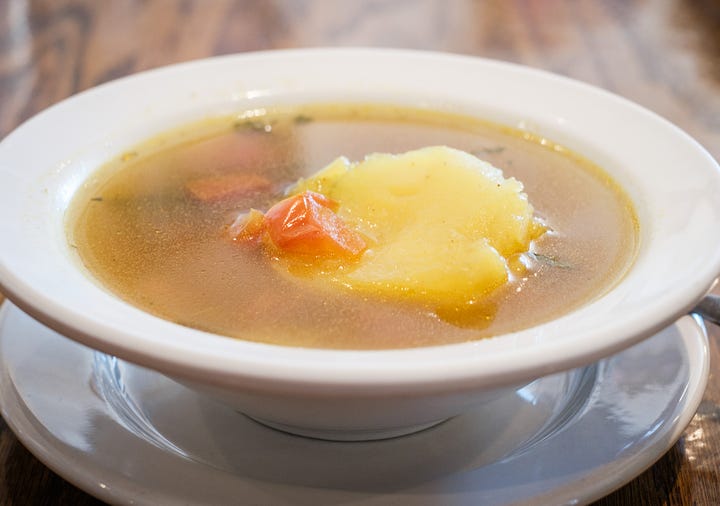
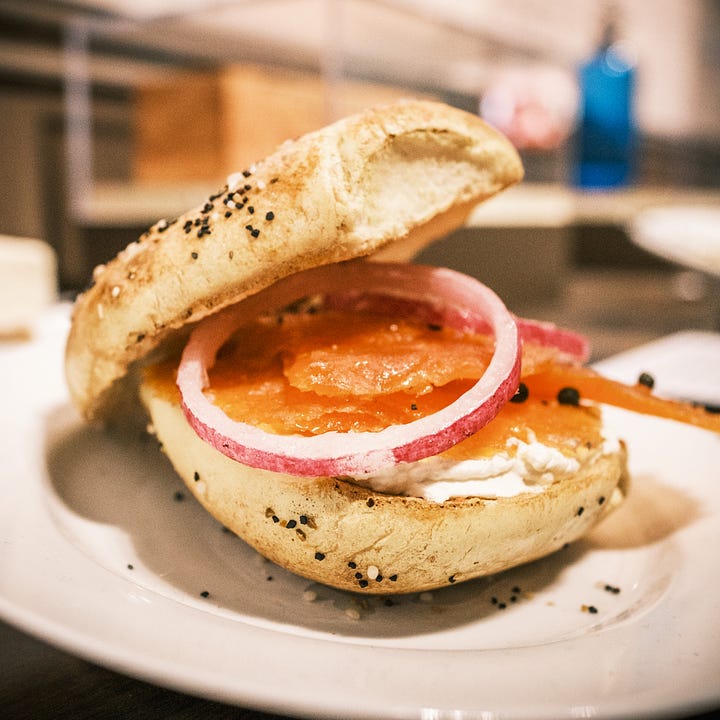
Yet rather than succumb to kitsch and nostalgia, the sweeping survey is a powerful testament to immigrant perseverance. Central and Eastern European Jews arrived in New York a century ago, selling regional foodstuffs, adapted for their new homeland, out of barrels and pushcarts on the Lower East Side. As authorities enacted discriminatory laws to limit their presence, those with sufficient means developed brick and mortar restaurants, giving rise to the uniquely American institution of the Jewish deli. As Jews migrated across the US so too did the deli, cementing itself as a cornerstone of American life.
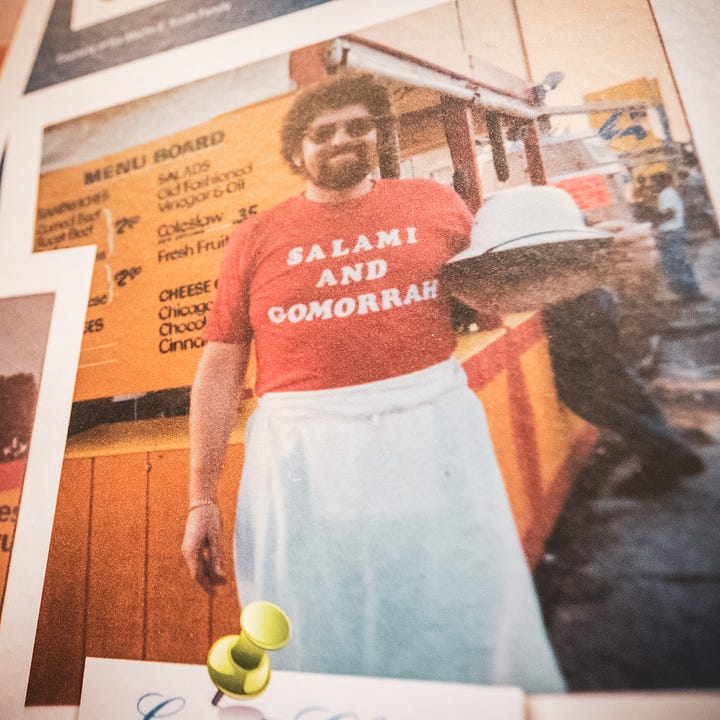
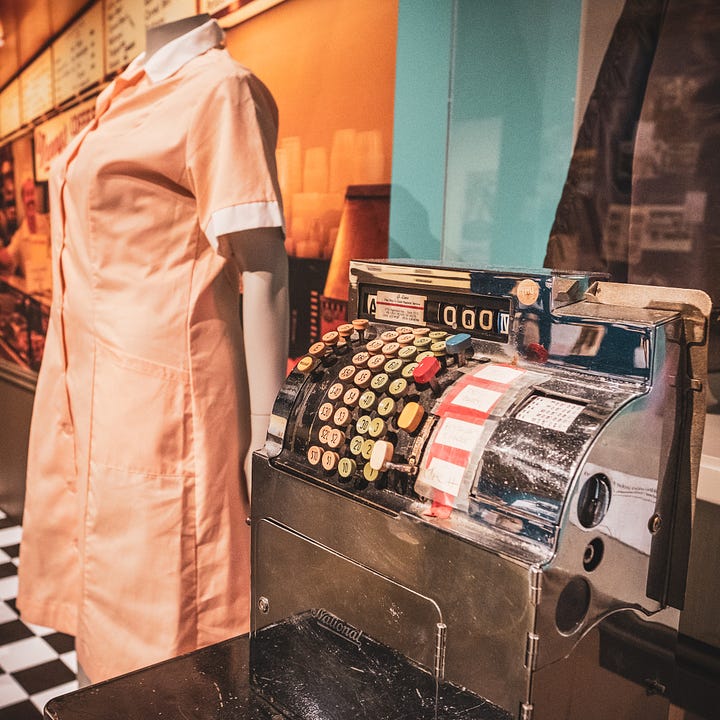
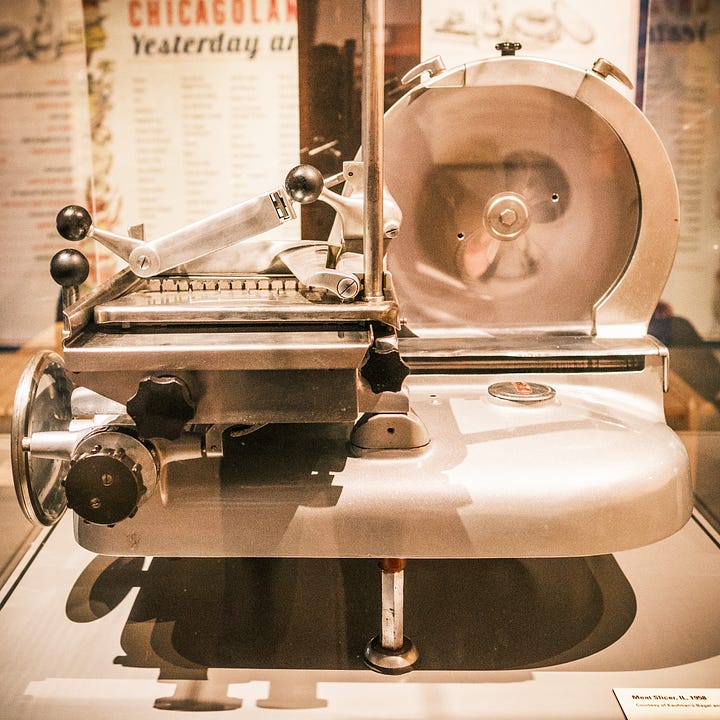
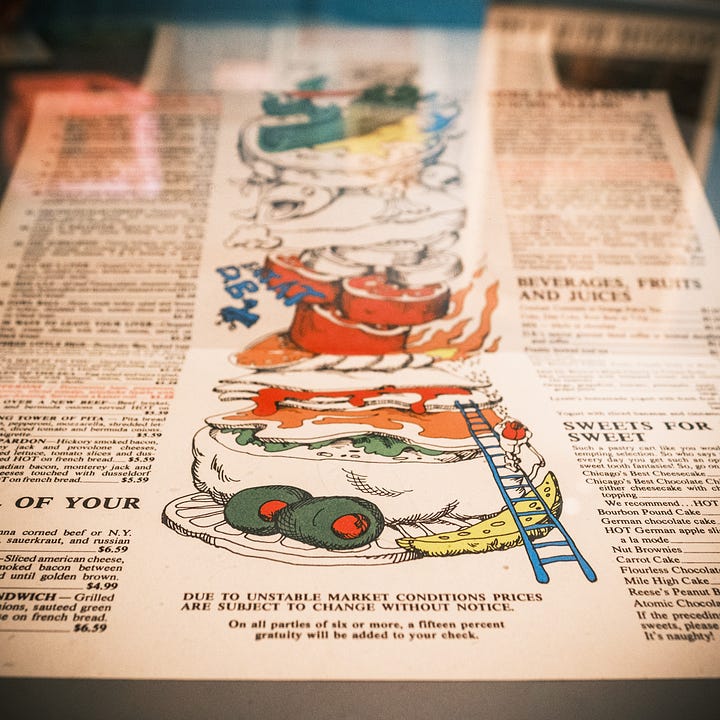
The deli’s diasporic reach is on full display, with archival photographs, menus, uniforms and other artifacts from Jewish centers such as New York, Los Angeles, Chicago, Indianapolis, Houston and Miami. While I found the entire show compelling, I was particularly drawn to the Chicago-centric objects and stories.
A captivating video featuring Kaufman’s, Manny’s, The Bagel and other classic Chicago area establishments set the celebratory and heartfelt tone of the exhibition. I found myself smiling and nodding in agreement as proprietors and regular customers reflected on the comfort and joy these local institutions have provided generations of hungry souls.
In the first gallery an advertisement for Rosen’s dark rye bread captured my attention. It turns out that a key component of the Chicago dog — the S.Rosen’s poppy seed bun — is indebted to a Jewish emigre. Sam Rosen left Poland at nine years old to become an apprentice baker in Germany, eventually making his way to Chicago. He started selling his old style rye from a horse-drawn buggy in 1909 and began crafting the beloved buns in 1935.
I also lingered over the Vienna Beef memorabilia. I’ve never given much thought to the fact that the hot dog I so cherish is a product of Jewish immigration. In a photo dating to 1928, when the Vienna Sausage Mfg. Co. was located in the heart of the Maxwell Street area, the truck from which they peddled kosher franks was emblazoned with the Star of David.
Though it may not seem obvious today (only Manny’s and a few wholesale clothing stores lining Roosevelt remain) the Maxwell Street area was Chicago’s Lower East Side. Jewish immigrants started settling there in the 1870s; by the early 1900s the neighborhood housed more than 50,000 Jews and 40 synagogues. This was the heyday of the original Maxwell Street Market, the massive open-air pushcart market that came to define the neighborhood (which subsequently became a locus for African American Blues musicians arriving from the South during the Great Migration and turned predominantly Mexican American in the 1990s).
I was struck by the personal histories of several area deli proprietors. Irene and Eugene Loeb, founders of Rogers Park’s Romanian Kosher Sausage Co., made sausages in a small kitchen in Bucharest before fleeing Communist Romania. They briefly settled in the Dominican Republic, where they reestablished the shop, before moving permanently to Chicago. According to their granddaughter and current owner Katherine Loeb:
“The fact that they survived and thrived as immigrants lent a certain meaning to the business; it also helped them get away with less-than-stellar customer service, which came to be seen as part of the charm.”
As someone who grew up going to Ratner’s, an old school Jewish dairy restaurant on New York’s Lower East Side, with a fleet of older male waiters known for their unabashedly surly attitudes, I can relate to this sentiment.
Kaufman's in Skokie was started by a Holocaust survivor, Maury Kaufman, and it became a sort of community center for survivors on both sides of the counter. Owner Danny Wolf of The Bagel in Lakeview (who died last year), was born in the Theresienstadt ghetto-labor camp. Just as the exhibition begins to take on an elegiac tone, the curators emphasize that the spaces these individuals created stateside are a demonstration of surviving and thriving — the Jewish deli is a place full of life, laughter and kibitzing.
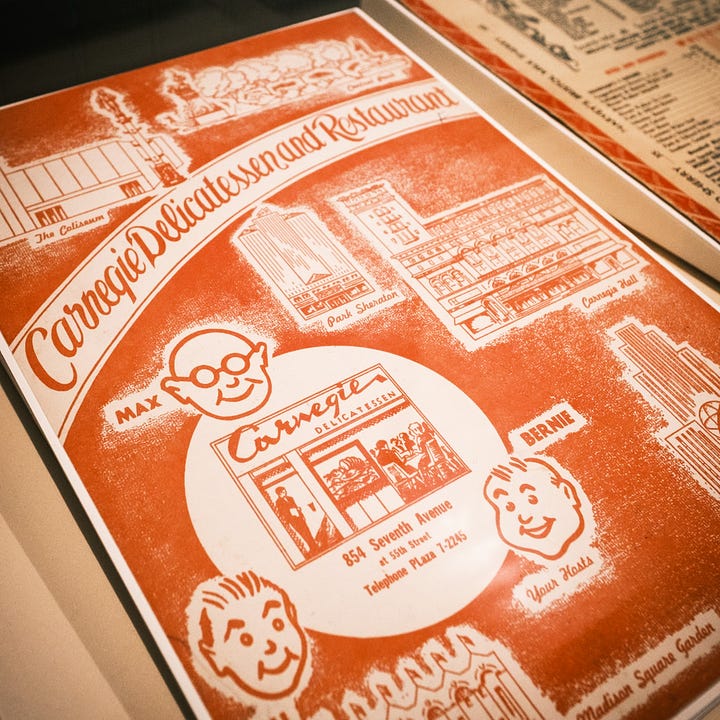
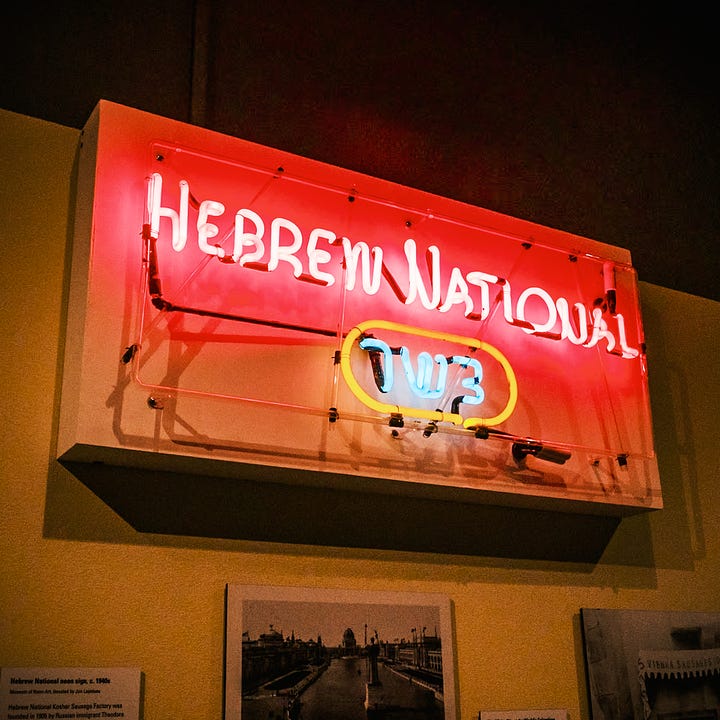

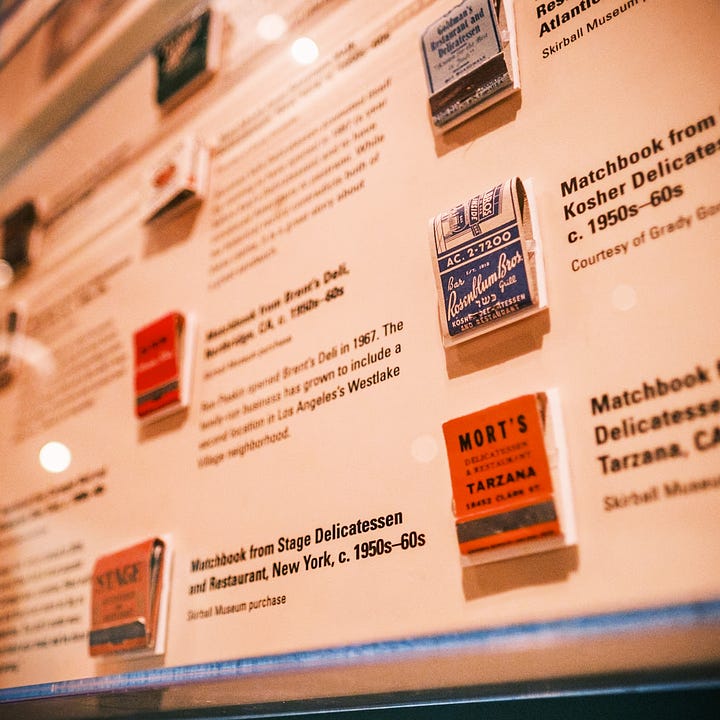
While countless delis across the US have closed, the survey ends by highlighting the recent resurgence of interest in deli culture, and the ways the new generation has updated the classics cannon to suit current dietary trends. Of particular note is Uptown’s Sam & Gertie’s, which claims to be the “world’s first vegan Jewish deli” and offers items such as cold cured tomato läks filets, soy cream cheez, roasted turk’y and fried baykin.
While I remain a purist — I like my lox made from salmon and my cream cheese made from milk — I’m glad the local deli scene is ascendant. As the show makes plain, Jewish delis are an undeniable force in our culture, where the bagel has become as American as apple pie.
Photos by Jared Wheeler
If you enjoyed this post, please forward it to someone who’d enjoy it, and tap the heart icon above or below, which will help me reach more readers. Thanks!





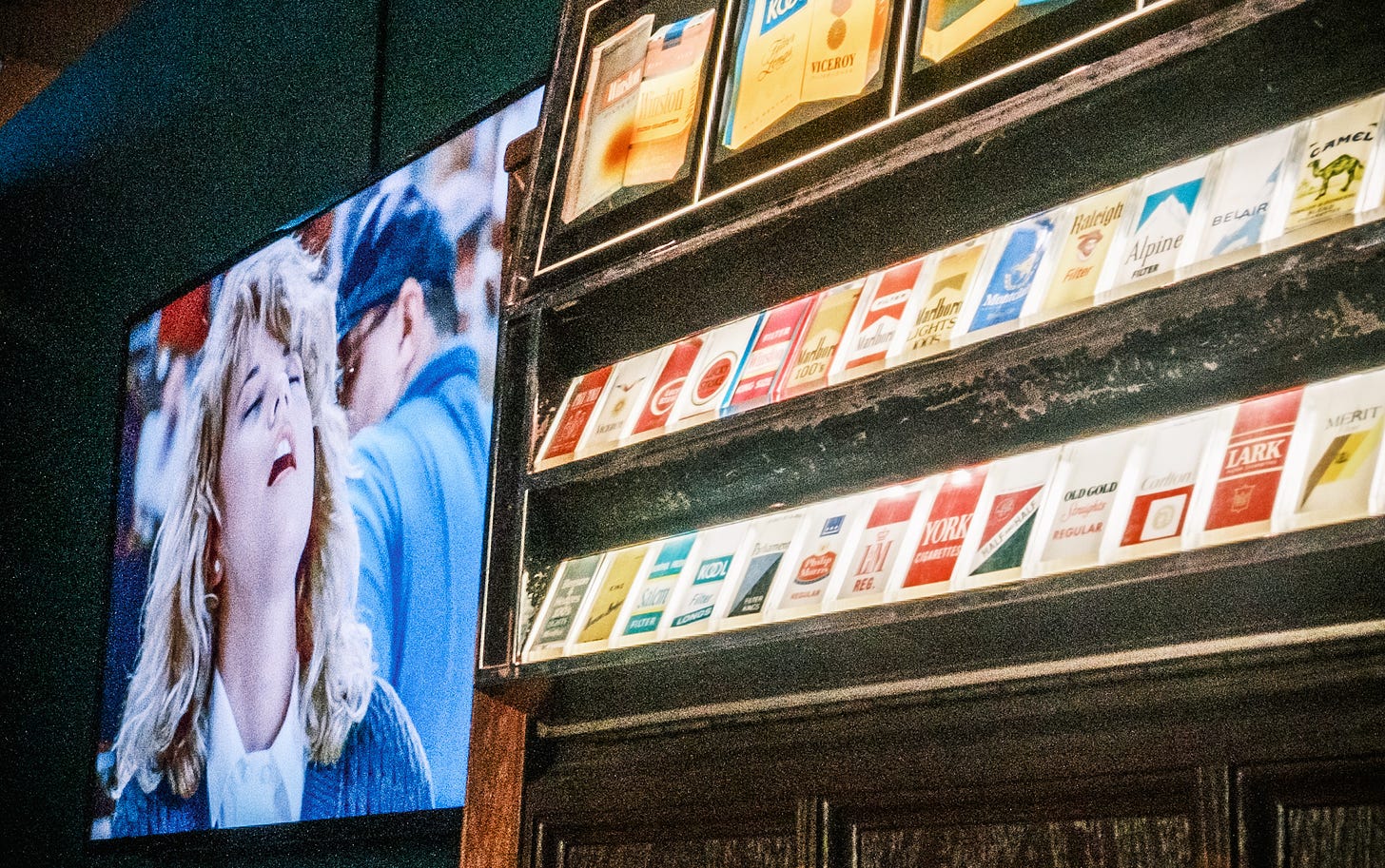
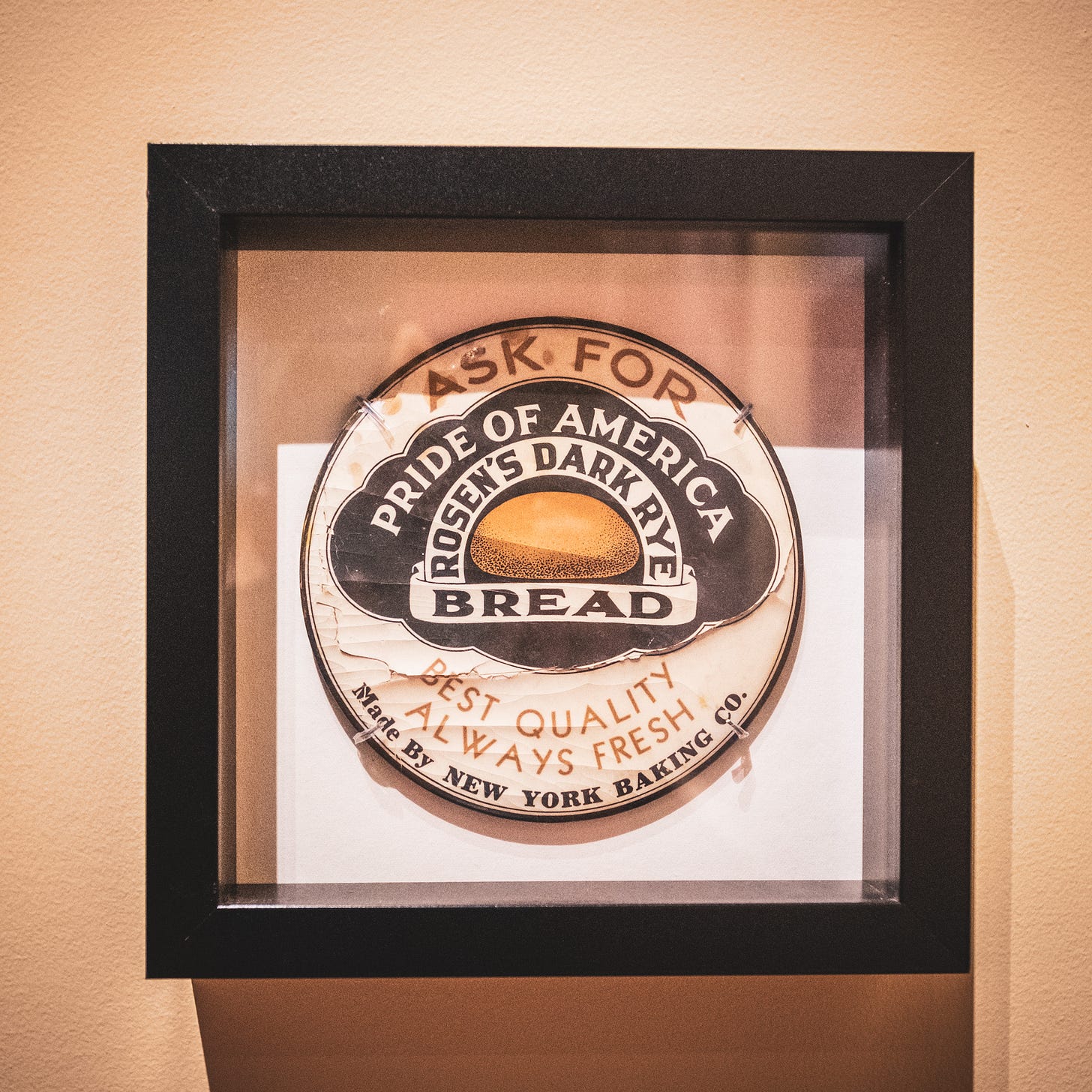
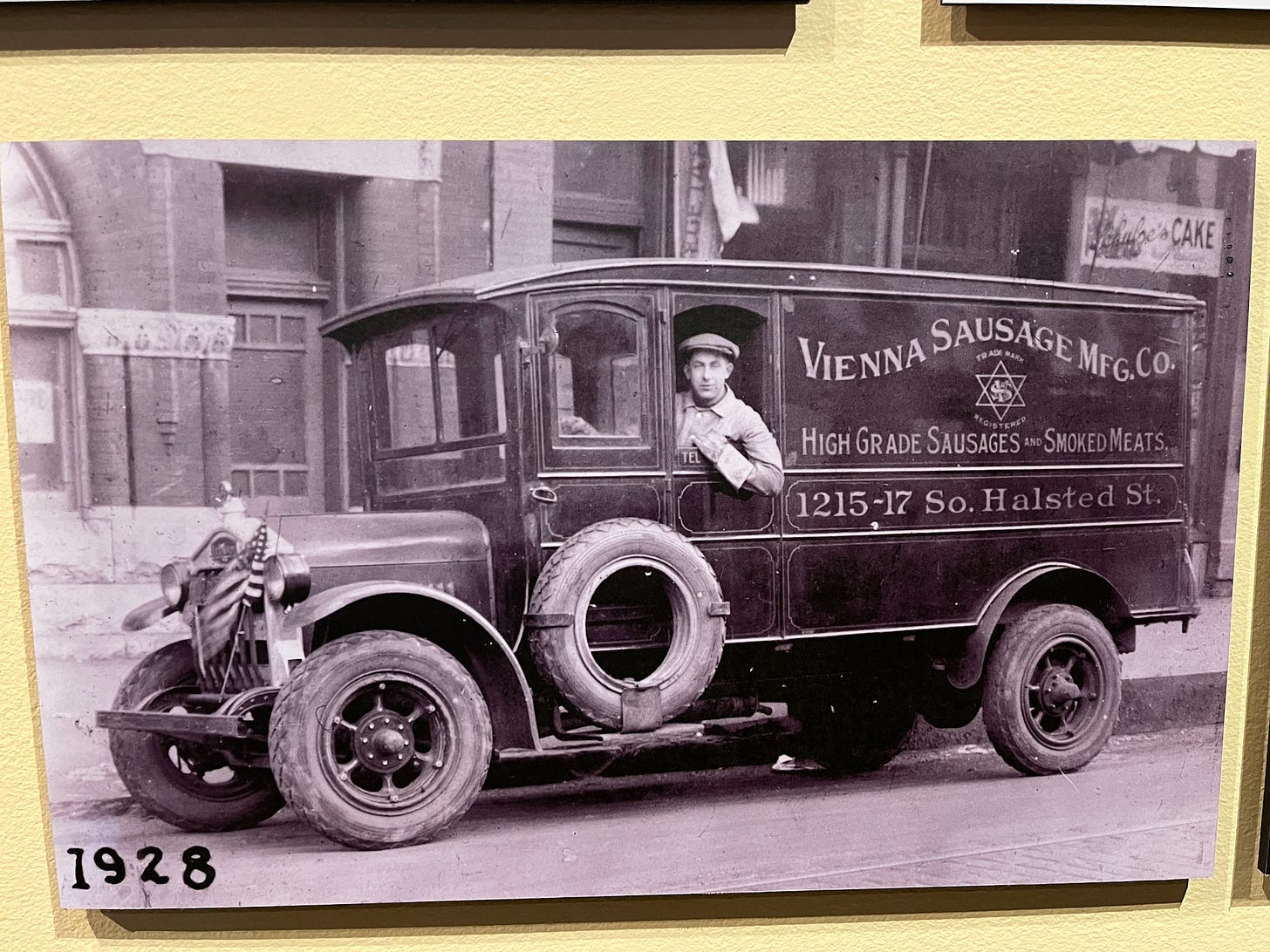
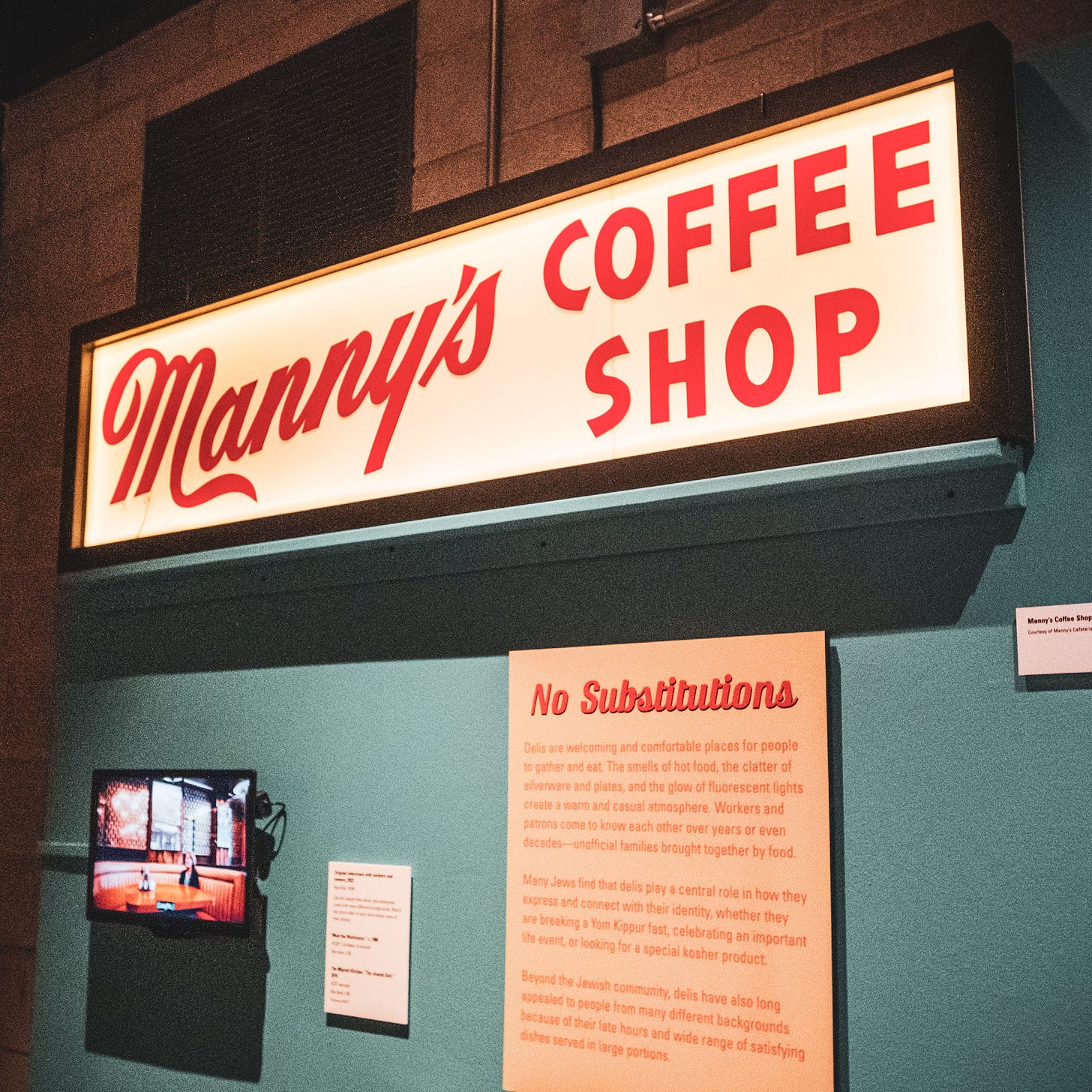
As a died-in-the-wool Christian "boy" (OK I'm 75 years old but I act like I'm 10), I can easily eat my weight in Jewish deli food. I enjoyed my many visits to Ratners as much for the insulting waiters as for the food. I married into a Jewish family so that I would easy and continuing access to all of the goodies ("Jew Food" as one relative told me). And so Thank You Irene and Harry Brodey of Indianapolis for all of the very delicious parties, brunches and celebrations! Sure. I love a delicious freshly-made wiener schnitzel. But I can then really enjoy a pastrami sandwich with brown mustard for dessert. Frankly, you have to be totally meshugonah if you have never eaten Jewish deli food. Great article, young lady, which brings back many fond memories! Your Old Man
Whitney! Another knock out of the park! Love this one, and love your writing! One of the food categories we miss most over here in Europe has to be the Jewish deli specialties (would kill for a reuben right about now!).